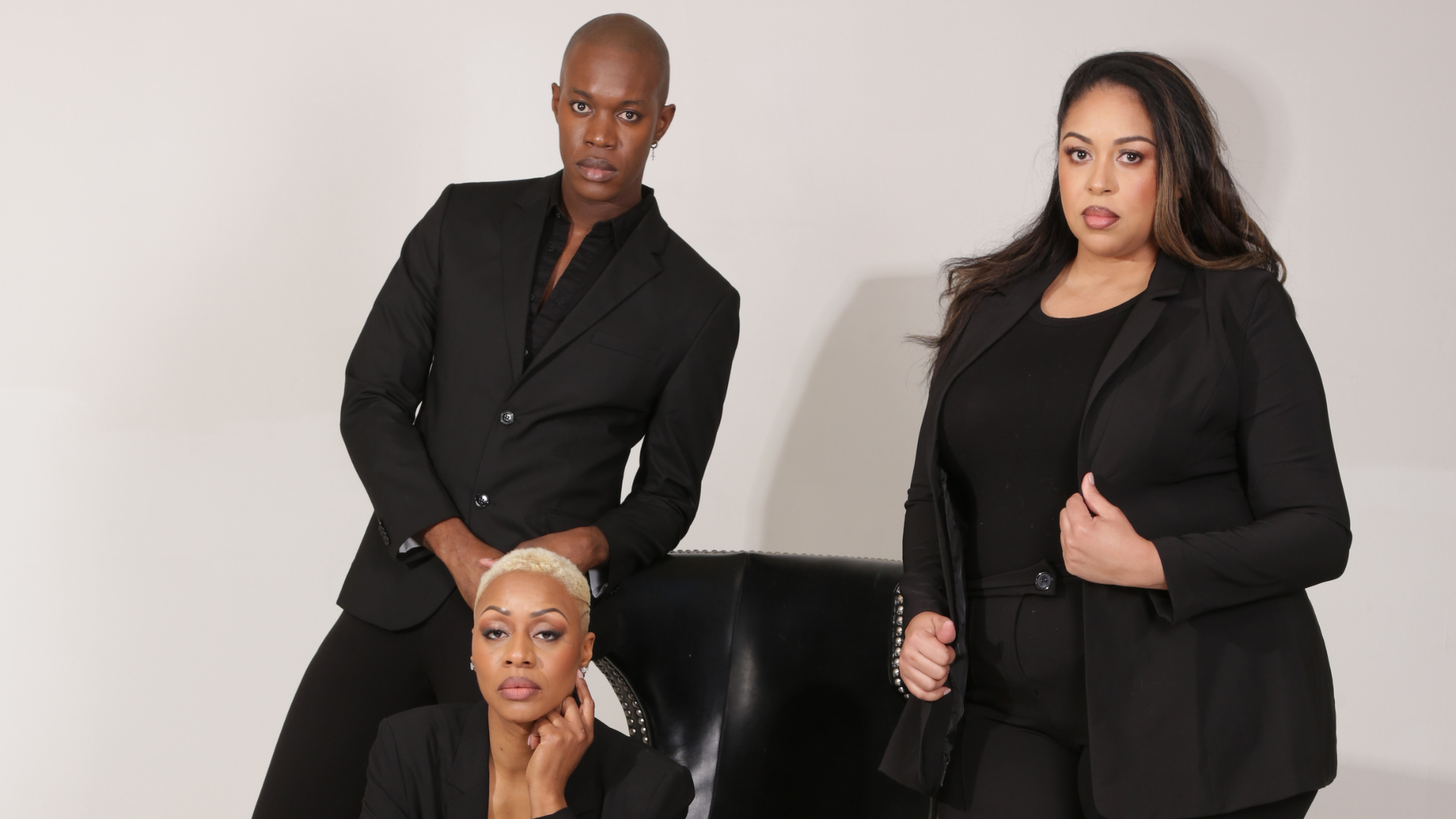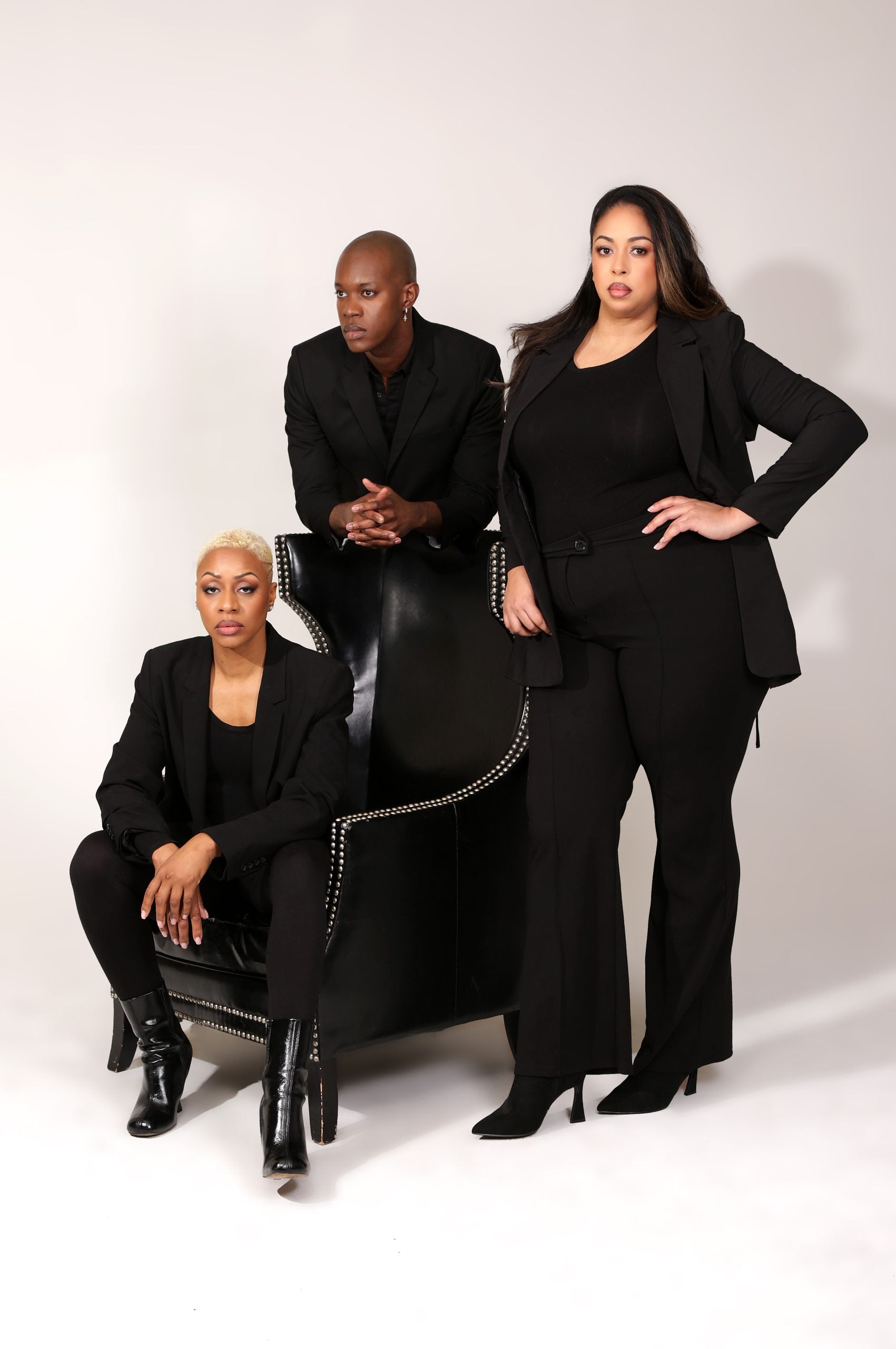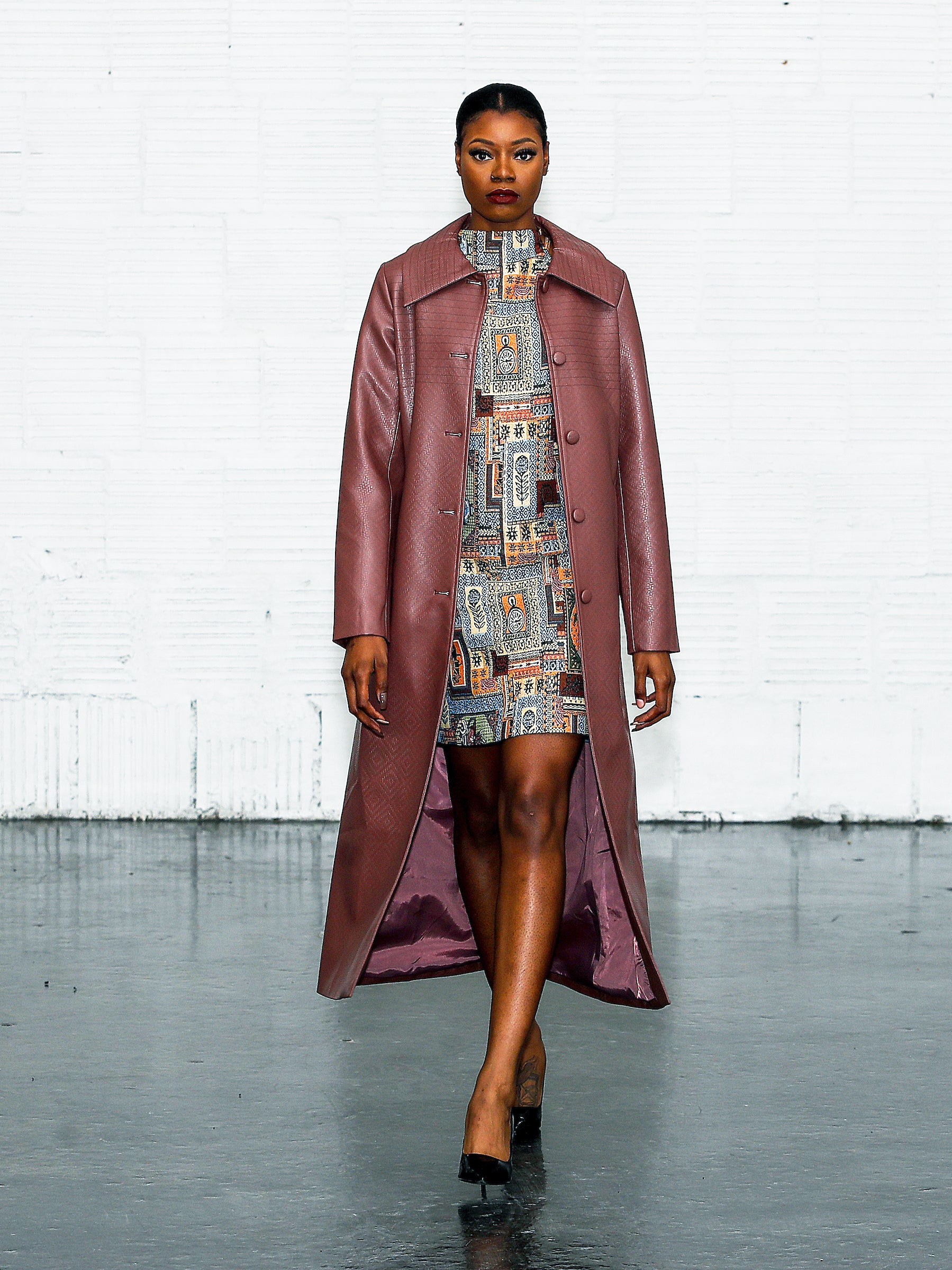
Three Caribbean models-turned-fashion multi-hyphenates aren’t waiting for the industry to make room for people like them, they’re doing it themselves. Xavier Walker, Stewella Daville, and Norka Vasquez are the forces behind the Caribbean Fashion Collective: a platform creating opportunities and fostering connections for designers hailing from the Caribbean islands. Making their ways from Jamaica and the Dominican Republic (Walker and Daville from the former and Vasquez the latter.) Accompanying the founders is an unshakeable pride for their culture’s fashion and a need to propel it forward.
The Caribbean Fashion Collective was initially forged by Xavier Walker nearly four years ago. What started as an idea in the back of his mind finally came to fruition as he noticed the support so many industry hopefuls from the Caribbean needed. Since he’s always been an inherently curious individual, Walker often arrived on set wanting to do more. From model to booker, casting director and backstage manager, he tells me he constantly sought out involvement from various angles during the early stages of his career. That was until he became accustomed to helping smaller brands land media placements, build networks, and produce intimate presentations.

Through the collective, he and co-founders Vasquez and Daville aim to be a one-stop hub for growing brands, Caribbean and beyond, to learn about what it takes to successfully connect with American audiences and buyers. The collective’s main focus is centered on education, connection, and production. They host workshops for designer brands, help to produce and cast shows and presentations, and leverage contacts to get designers in the right rooms. More importantly, they seek to inform up-and-coming brands on all of this knowledge so they can build the skills necessary to become self-sufficient and empowered.
This upcoming September, the Caribbean Fashion Collective will host a showcase during New York Fashion Week, highlighting ten Caribbean designers. With this presentation, they are excited to display the brilliance that Caribbean creatives infuse into their designs. They impress upon me that as passionate as West Indians are about their self-expression, they are equally dedicated to hard work and expert quality. “Every single piece is properly made,” Walker mentions over a video call about the work being produced by designers within the collective.
The hand-picked designers that have been chosen by the collective include Freedom Ecowear by Vivi Rufino, Reve Jewelry by Duane and Teasea Benett, Kudos Designs by Gaynelder Grazette, and BNHO Crochet by Shawn Layne. These few are but a handful of designers the pair vehemently gush over, and insist we put on our radars.
To the three founders, empowering emerging designers from underrepresented backgrounds is vital to preserving their ingenuity and contribution to the fashion space. They have witnessed how, time and again, smaller brands’ designs are copied and adopted by brands who simply have more resources to produce and scale.
“The Caribbean is a force to be reckoned with, but because we are so tiny, we are always overlooked,” Walker explains. Taking into consideration the political and economic climate we currently find ourselves in, the collective founders are only more determined to carve a lasting space for their community. “The climate right now speaks for itself, but nothing outside of fashion is going to affect us. We are going to continue to be resilient and bring out the best that we can.”

The founders briefly note how successful brands such as Theophilio by Edvin Thompson and Diotima by Rachel Scott have burst through the glass ceiling to represent the Caribbean, and are keen to do what they can to ensure even more designers from the islands are afforded similar opportunities.
Like kindred spirits, the three fashion professionals found alignment in aspirations, backgrounds and purpose. Walker reminisces on how their paths crossed, meeting both Vasquez and Daville in the backstage bustles of fashion shows. Vasquez recalls nervously asking Walker to assist her with her walk, and they’ve been inseparable since. For Walker and Daville’s meeting, he lightheartedly jokes about how the two Jamaicans sized each other up before determining how well they meshed. Now, the three and their larger families are but one solidified unit brought together through work and culture.
“Everything that we do somehow, someway, we pull each other in,” Vasquez explains of their relationships. In a tight-knit industry where who you know is often the most important element to success, they realized not only the importance of leaning on organically-built community, but also of forging that space for emerging Caribbean creatives to participate and benefit from as well.
Vasquez’s introduction to fashion came via her mother, who would create designs for women in the dancing scene back in the Dominican Republic. “One thing about Caribbean people,” she begins to tell me, “you’re always going to know when they’re in the room, because they’re always the most fashionable people out there. Any event, anything at all that we’re involved in, we bring that vibe,” she states proudly.
Once she moved to the States in 2002, her love for fashion grew, and she could not ignore the lack of body diversity, as well as the representation for Caribbean designers. This inspired her to become an advocate in the space for women like herself who wanted to see themselves reflected in the art they loved. She transitioned from model to casting director and overall e-commerce work, where she fostered her love for fashion’s behind-the-scenes elements.
Walker’s love for fashion budded in high school, despite his Jamaican grandmother’s insistence that it was a “lazy man’s job.” Getting his feet wet as a model in Kingston, he eventually made his way to the United States and signed with EMG Models in 2019. Through this agency, he cultivated an interest in casting as well, participating in a trial period before starting full-time as a casting director. After casting, soon came his involvement in show production, which he has now been doing for nearly eight seasons.
Similarly, co-founder Daville navigated through the industry as a model first, and ultimately thrived as a skilled show producer and backstage coordinator. Her managerial prowess, love for fashion, and her own people made joining the collective an easy decision. “It’s been the most meaningful project I’ve worked on, as it merges my love for fashion with a mission to uplift and celebrate our culture,” she shared. Daville is eager to showcase “the depth of Caribbean talent,” which she attests is distinguished by craftsmanship rooted in traditional techniques, such as hand-woven lace patterns and stitching. She’s confident that as an underrepresented subgroup in the fashion world, Caribbean designers can bring forth a “new design language” to the vestiary conversation.
The trio now pulls their collective experiences together to lay a foundation for other fashion creatives looking to navigate the industry. For Quinton Pearson, the designer behind House of Pearson, support from The Caribbean Fashion Collective will expose his brand to larger international networks and position him to participate in the collective’s first showcase at NYFW this fall.
From a designer’s perspective, Pearson shares, “It’s an incredible opportunity to showcase your work on an international level while being part of a community that truly values our region’s creativity and craftsmanship. The CFC is committed to uplifting Caribbean fashion and helping designers gain exposure.”
The Caribbean Fashion Collective speaks with such clarity about the artistry coming out of the West Indies. Impassioned by the founders and their tenacity, the platform will not rest before constructing a global stage fitting for the deserved recognition. “Our designers put their blood, sweat and tears into their design because they’re the only ones doing it. They don’t have a team, or factories, it’s just them being passionate about what they’re doing,” Walker adds.